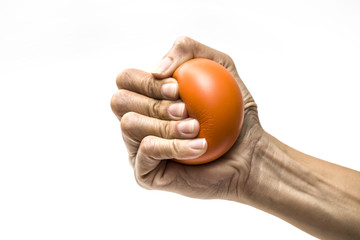
Acute stressful events can trigger the release of cortisol and testosterone into the human bloodstream. While cortisol prepares us to fight or flee in the context of threat, testosterone may amplify male dominance and competitive behavior in socially stressful situations. Chronic or frequent exposure to stressors, however, can alter hormonal levels and potentially lead to the development of physical and psychiatric disease.
While significant knowledge has been gained regarding the cortisol stress response, less is known about complex feedback between these hormones and how they are mutually affected by stress reduction techniques.
Fan et al. [Stress] tested the effects of mindfulness meditation and muscle relaxation on male college students’ salivary cortisol and testosterone levels before and after exposure to a stressor and after practicing a stress reduction technique.
The researchers randomly assigned 32 meditation-naïve Chinese college men (average age = 21 years) to either Integrative Body Mind Training (IBMT) or a muscle relaxation control group. Both treatments were delivered in 20-minute group training sessions conducted over the course of 7 consecutive days. IBMT included mindful stretching poses followed by open-monitoring sitting meditation emphasizing acceptance of experience.
The muscle relaxation control involved sequentially focusing attention on different muscle groups and relaxing them through focusing on sensations of warmth and heaviness.
After training, both groups participated in an experimental session consisting of 5 minutes of rest followed by a 3-minute stressor task. During the task, participants were instructed to subtract 47 from a 4-digit number sequentially. If participants failed to respond with a correct subtraction answer within 5 seconds, the computer emitted a harsh sound, and the participant had to restart the task.
The task was followed by a 20-minute relaxation period, during which the participants followed the IBMT or relaxation protocol they had trained on. Salivary cortisol and testosterone samples were drawn immediately after the rest, stressor, and relaxation periods.
The results showed both groups significantly increased their cortisol and testosterone levels in response to the stressor task. After the relaxation period, muscle relaxation participants’ cortisol levels continued to rise (d=0.76), whereas IBMT participants’ did not. IBMT participants’ cortisol levels were significantly lower than muscle relaxation participants’ after the relaxation period (d=0.34).
Testosterone levels rose in response to the task and continued to rise for both groups during the relaxation period. However, this rise was significantly steeper for the IBMT group (d=1.07). Changes in cortisol and testosterone levels were uncorrelated.
The findings suggests that IBMT could potentially reduce the acute cortisol stress response while increasing testosterone levels in young adult males encountering an acute stressor. In contrast, progressive muscle relaxation was found to be less effective in reducing cortisol response and resulted in a weaker increase in testosterone levels. However, the study has limitations in determining whether these cortisol and testosterone responses are adaptive.
Reference:
Fan, Y., Cui, Y., Tang, R., Sarkar, A., Mehta, P., & Tang, Y.-Y. (2024). Salivary testosterone and cortisol response in acute stress modulated by seven sessions of mindfulness meditation in young males. Stress.
Link to study